
READ MORE: Unlocking the Metaverse (YouGov)
While the metaverse is now a hot topic for those in media and entertainment, most Americans still haven’t heard about it — or understand what it is.
The new YouGov report, “Unlocking the Metaverse,” says that in the absence of a fully-built metaverse consumers have a difficult time visualizing how it will differ from existing VR tech.
“Most consumers do not want an entirely alternate reality in the metaverse — however, many envision ways it can enhance the physical world… without replacing it,” the survey finds.
“At this stage in the metaverse’s evolution, a dichotomy exists: for some, it represents an aspiration to make life a little better. For others, it threatens to undermine ‘real’ life.”
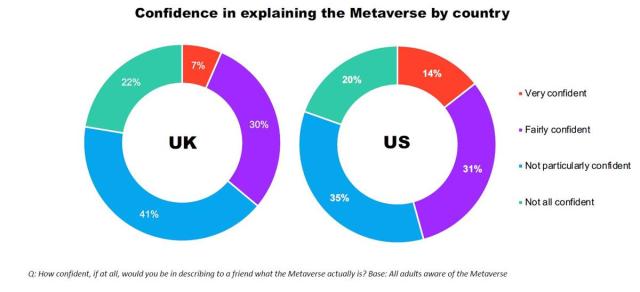
That clearly presents brand marketers with a conundrum. YouGov’s advice: “Beware of the metaverse echo chamber — and be aware that what ‘metaverse’ means today isn’t what it will mean tomorrow.”
With research pulled from online populations in the US and the UK this past March, YouGov defines the metaverse “as a virtual world where you can create an electronic version of yourself and then take part in activities on your devices and associated equipment.”
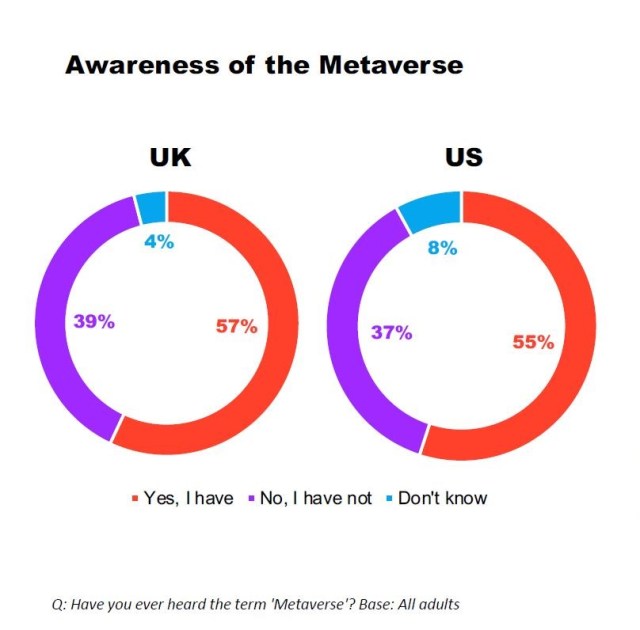
Justifying its research, YouGov says that the metaverse “is poised to evolve our digitally driven modern lives from video, photo, and text-based interactions to highly immersive and connected virtual experiences.”
But what do consumers think?
Predictably the results are mixed from a marketer’s perspective.
NAVIGATING THE METAVERSE:
The metaverse may be a wild frontier, but here at NAB Amplify we’ve got you covered! Hand-selected from our archives, here are some of the essential insights you’ll need to expand your knowledge base and confidently explore the new horizons ahead:
- What Is the Metaverse and Why Should You Care?
- Avatar to Web3: An A-Z Compendium of the Metaverse
- The Metaverse is Coming To Get You. Is That a Bad Thing?
- Don’t Expect the Metaverse to Happen Overnight
- A Framework for the Metaverse from Hardware to Hollywood and Everything in Between
On the plus side, more than half of consumers in both the UK and the US have heard of the metaverse, with young adults having a higher level of awareness.
Young Americans have the highest interest in the metaverse. In the UK, a third (32%) of Gen Z and almost a quarter (23%) of ages 25-34 are interested in the metaverse.
In both countries, men express more interest in the metaverse than women. However, a similar proportion of females in the US (22%) are more interested in getting involved in the metaverse than British males (20%), indicating a broader potential for metaverse growth in the US.
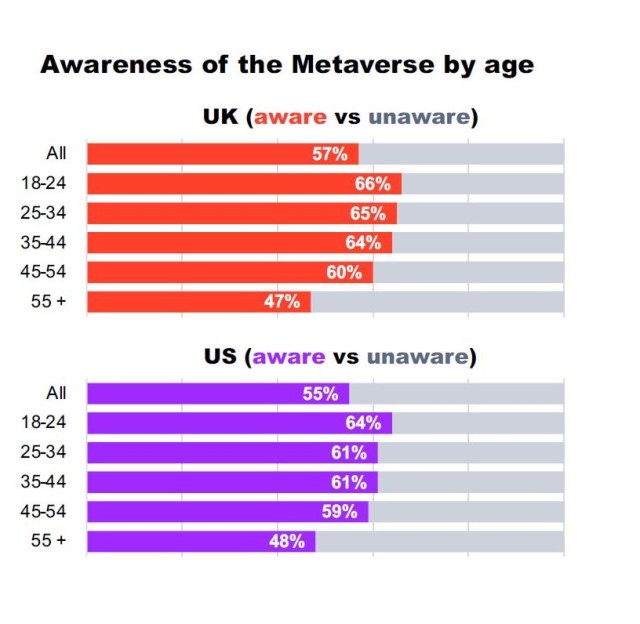
On the other end of the spectrum, 31% of British and 25% of American consumers have no idea what the metaverse will look like. These descriptors raise questions around what kind of virtual world people are envisioning when it comes to the metaverse, and how closely this conception aligns to the reality of the platform.
In the US, those who haven’t tried the metaverse think it’s a virtual reality experience, but people who have used it see it as a more eclectic, social platform.
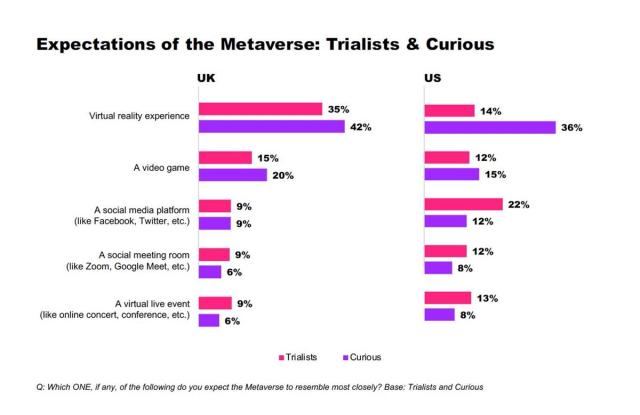
In the UK, consumers’ understanding of the metaverse is more closely connected to VR.
“There is risk in white-washing any virtual activation as being ‘in the metaverse,’ ” warns YouGov. “Early trialists (adopters) see this world as more social network, less virtual reality. If their experience is sub-par, so too will be their opinion.”
Outright rejecters (one in five Brits and Americans) are largely older generations who have a general sense of uneasiness when it comes to new tech. Those uncertain are hesitant about crypto and regulation.
YouGov’s advice to financial services and technology companies is to establish more credibility in securing a safe environment so all prospective users can feel comfortable interacting with other parties in the metaverse.
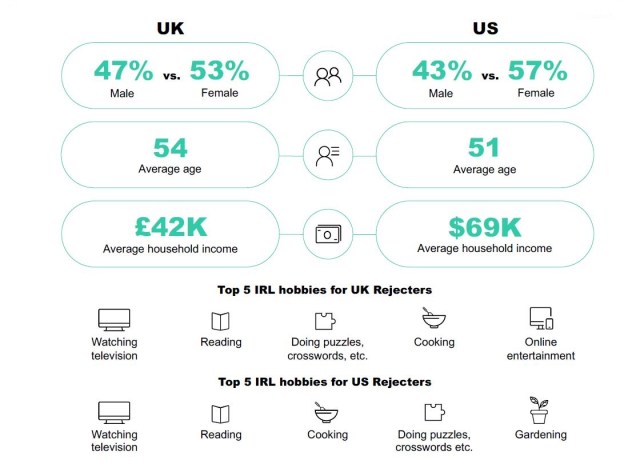
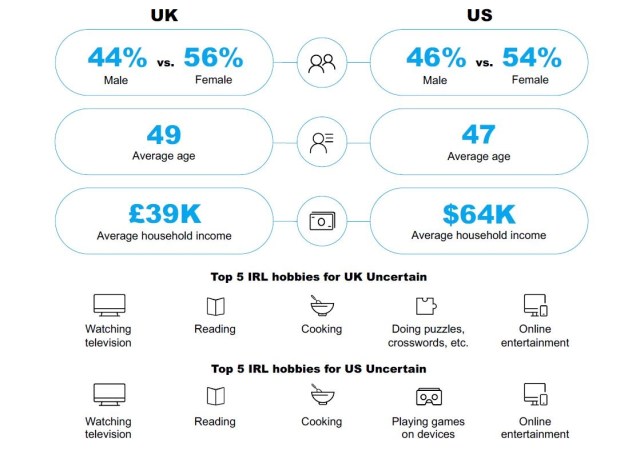
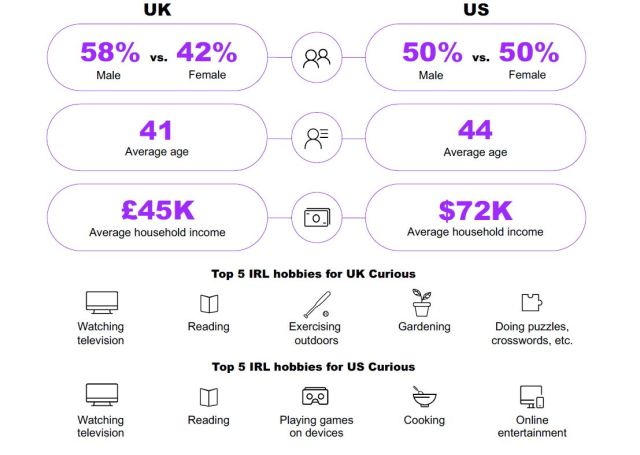
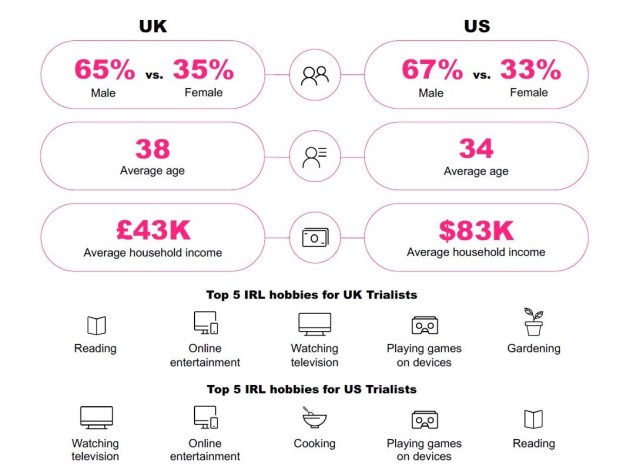
Good news for Meta, too. Following its recent rebrand, Meta enjoys the strongest association with the metaverse among consumers in both the UK (65%) and US (55%).
A very small proportion of Americans aware of the metaverse associate it with other brands, including pioneering tech brands such as Decentraland and The Sandbox.
YouGov’s sage advice across the piece: “Be patient with consumers and expect a long learning curve.”

